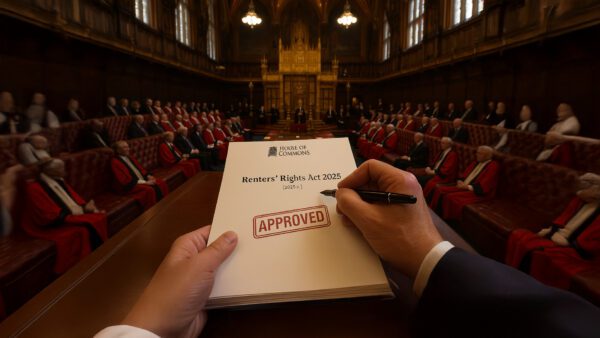Introduction
Planning for loss of capacity can be challenging at the best of times. Lasting Powers of Attorney (LPAs), or their international equivalents, enable an individual (technically, a donor in the case of LPAs) to appoint representatives (or attorneys) to carry out their wishes should they become incapacitated or unable to make decisions to protect their own interests.
Each jurisdiction has its own regulations and formalities in relation to questions of incapacity and some jurisdictions have no framework in place at all. Even where there is a framework, as with the UK’s system, representatives (or attorneys) often encounter difficulties in obtaining recognition of their LPAs for use abroad, as this article will explore.
An Illustration
Let us consider a donor who works in the UK, as this is where his business is headquartered. The UK is not his country of origin, and nor is it the jurisdiction where his family and most of his assets is situated. His business has offices worldwide and he personally has multiple bank accounts and properties in those jurisdictions too.
This individual has registered both types of LPA (i. Property & Financial Affairs and ii. Health & Welfare), but when he sadly develops an illness which inhibits his decision-making powers, the attorneys discover that the LPAs are not recognised in the other jurisdictions where he operates his business interests and owns assets.
STEP’S Global Representative Power
In an attempt to address this issue, we illustrate above, the Society of Trust and Estate Practitioners’ (STEP) has proposed a model for an internationally recognised power of attorney, with the intention that it may be accepted worldwide.
In August 2023, STEP’s expert members set out their proposal for a so-called ‘Global Representative power’ (GRP). STEP hopes that the GRP will serve as a global benchmark when reviewing or implementing new legislation, particularly in jurisdictions where the laws surrounding cross-border incapacity fail to exist or are not as robust as can be. In effect, this is an effort at achieving harmonisation on questions of incapacity in a manner which reflects and accommodates our globalised world.
The proposed GRP is not intended to replace any existing framework (at least for now), but instead it seeks to offer additional security by capturing the strengths and characteristics of LPAs in a single ‘catch-all’ guide, which if adopted accurately, will enable donors and their representatives, the ease of managing their affairs in a harmonised global manner and without jurisdictional issues.
The GRP is still a template at present, which is likely to be subject to change. The model application forms can be viewed as part of the GRP toolkit published by STEP which includes guidance, considerations, and final certificate templates.
What Does STEP Aim To Achieve With Its Proposed GRP?
STEP conducted a survey in partnership with Alzheimer’s Society last year, which received responses from 756 members in 44 countries. Responses showed an overwhelming demand for further information and international discussion on how practitioners should offer advice to clients seeking to protect their assets, and for greater recognition and portability of LPAs across borders.
The key objective behind STEP’s proposal is to raise general awareness of the considerations behind incapacity and to encourage policy makers to:
- Ensure global legislation is robust and consistent;
- Safeguard against abuse; and
- Educate about capacity and associated planning.
Ultimately, STEP hopes to set a ‘gold standard’ which will be consistent in each jurisdiction. If successful, there is potential that the GRP will set the standard in minimising the time and cost constraints of registering multiple LPAs and appointing different attorneys in different jurisdictions.
Having a harmonious approach to incapacity globally should prevent donors from being left without attorneys in a jurisdiction where LPAs have no effect. In the UK, the absence of an LPA or some global equivalent with effect in the UK, would result in family members having apply, at some cost, to the Court of Protection.
Limitations Of The GRP
The GRP is limited to decision-making relating to property and financial affairs, whereas LPAs can also be used for matters relating to health and welfare. As such, even if the GRP is implemented, clients ought to consider their health and welfare needs in each jurisdiction where they spend any considerable time.
As always, donors should consider their chosen representatives in great detail. An attorney might be competent to manage the affairs in one jurisdiction but may be challenged with obstacles such as language barriers in another. An attorney who is fit to manage personal finances may not be equipped to manage the donor’s businesses. In these situations, it may be more practical to appoint different attorneys in different jurisdictions.
Whilst the GRP may be adopted worldwide, it is currently nothing more than a proposal and has no legally binding effect as things stand. STEP will urge jurisdictions worldwide to consider the GRP as far as possible, but it is down to the jurisdiction interpreting the GRP to ensure that standards are upheld, and suitable legislation is introduced to achieve the GRP’s core objectives.
For these reasons, and until the principles held within the GRP become wholly enforceable, it is still recommended that donors should seek advice on the requirements pertaining to the laws of incapacity, as they currently stand (both relating to property and financial affairs and health and welfare) in each jurisdiction of interest.
Conclusion
There is a long way to go despite STEP’s efforts to address a grey area that is cross-border incapacity, and the uncertainties that currently stand in the way of ensuring donors and their representatives have a thorough and effective process of managing their assets overseas.
Acceptance or even mere discussion of the GRP can be regarded as a step in the right direction. However, guidance may not be enough, and some degree of harmonisation brought about by legal measures is more likely to deliver on these stated objectives.
As matters stand, we continue to advise and recommend clients that the appropriate LPAs are registered, both in terms of assets and health. Further guidance can be found in the following briefing note on LPAs.
For tax and private client advice and services, please contact Ben Rosen via our contact form below.









